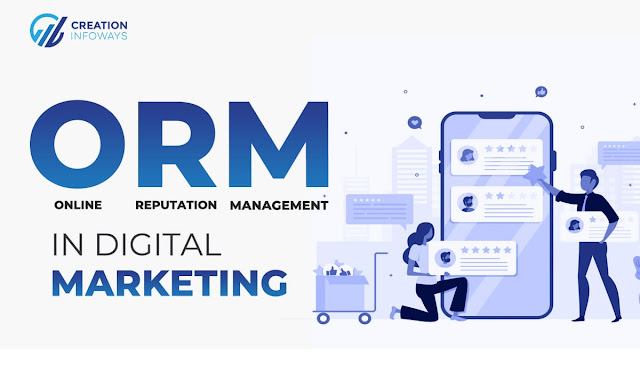In the digital landscape, a brand's reputation is a cornerstone of success. Online Reputation Management (ORM) stands as a sentinel, safeguarding and sculpting the perception of brands in the vast and ever-evolving digital sphere. This comprehensive guide dives deep into ORM in Digital Marketing's pivotal role, strategies, and its impact on digital marketing.
Understanding ORM in Digital Marketing
ORM encapsulates the proactive and reactive strategies deployed to shape, influence, and maintain a brand's online presence. It's not just about countering negative feedback but also about cultivating a positive perception. In today's interconnected world, consumers heavily rely on digital platforms to evaluate brands, making ORM an indispensable aspect of any marketing strategy.
Significance ORM in Digital Marketing:
ORM seamlessly intertwines with various facets of digital marketing. From search engine results to social media conversations, every online interaction contributes to shaping brand reputation. Effective ORM strategies augment brand visibility, build credibility, and foster trust among consumers.
Strategies for Effective ORM:
Monitoring and Listening: Utilize tools to monitor brand mentions across diverse online platforms. Actively listen to consumer feedback and engage promptly.
Content Management: Produce high-quality, valuable content that resonates with your audience. Positive content creation aids in pushing down negative search results.
Social Media Engagement: Engage authentically with your audience on social platforms. Respond promptly and transparently to queries, comments, and reviews.
Review Management: Encourage satisfied customers to leave positive reviews. Address negative feedback constructively and seek resolutions.
ORM and SEO:
ORM and Search Engine Optimization (SEO) share a symbiotic relationship. A positive online reputation often correlates with higher search engine rankings. Incorporating ORM practices into SEO strategies can enhance visibility and credibility, thereby attracting more organic traffic.
Future of ORM:
As the digital landscape continues to evolve, ORM will remain integral. Brands must proactively manage their online reputation to stay competitive and relevant. AI-driven analytics, sentiment analysis, and evolving social media trends will shape the future of ORM, demanding adaptability and innovation.
In conclusion, ORM isn't just about crisis management; it's about fostering a robust, positive online presence. It's a continuous process that requires dedication, monitoring, and strategic responses. Incorporating ORM practices into your digital marketing blueprint empowers brands to navigate the digital realm with resilience and credibility.
Optimizing ORM in digital marketing doesn't just mitigate risks; it capitalizes on opportunities to forge lasting relationships with consumers. Remember, the digital footprint your brand leaves behind is your legacy; let ORM guide it towards success.







0 comments: